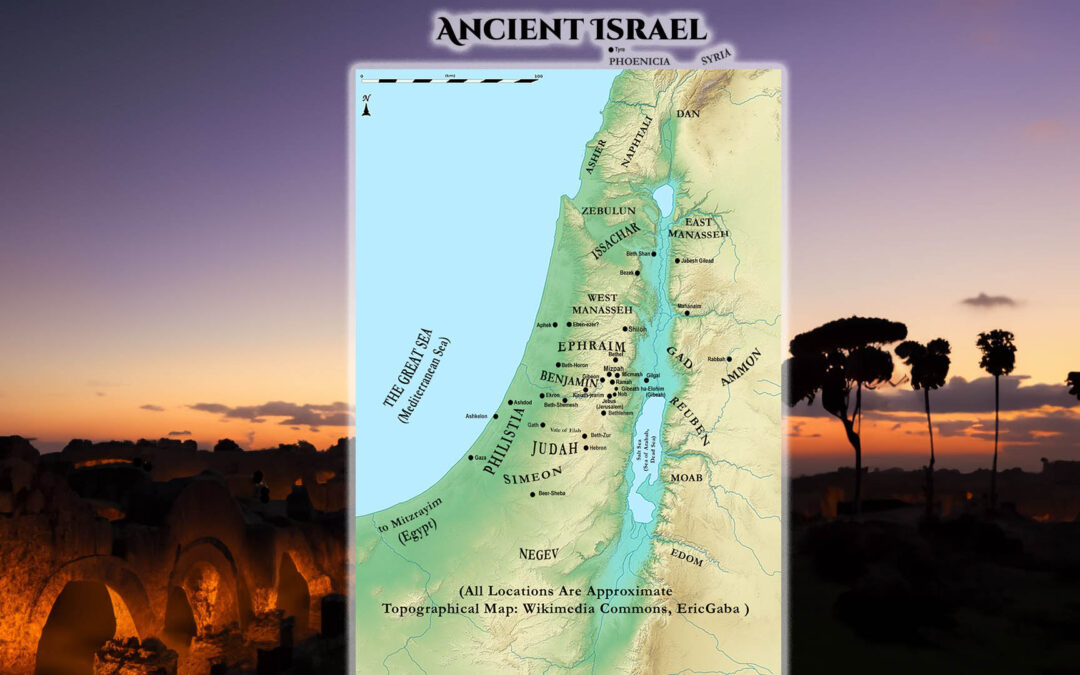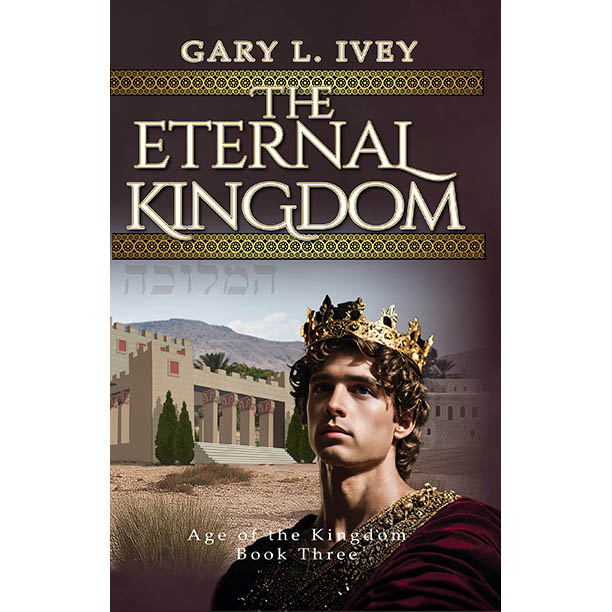I’m doing a series of novels based on the Bible stories during the United Monarchy of Israel 3,000 years ago, but How “United” was Israel’s United Monarchy, really?
You probably know by now that I’m writing a series of novels called the Age of the Kingdom Series, which is also the name of my YouTube channel. The backdrop of the novels is the period of time 3,000 years ago when Israel was united under the reigns of King Saul, King David and King Solomon.
I’m calling it a “United Monarchy,” but how united was it, really?
King Saul was young when he was crowned and got off to a rocky start. The tribe of Judah in the south felt like the king should have come from their tribe because they had much larger territory than any other individual tribe. Saul’s tribe of Benjamin was actually the smallest tribe. He was so backward that he ran and hid when it looked like the lots would fall on him to be king. But he managed to hit his stride when he raised an army of 300,000 men to free Jabesh-Gilead from the siege of the Ammonites. After that, the naysayers fell in behind him.
Until, that is, David killed Goliath, then the inter-tribal rivalries rose up again, and Saul became paranoid that David would take the kingdom from him. David went into exile and many men joined him to escape the wrath of Saul.
When Saul died on the battlefield, you might think everyone would want David to be king then, but Saul’s cousin and commander-in-chief, Abner installed Saul’s, weak fourth son, Ish-bosheth as king of the northern tribes and David was crowned king of Judah in Hebron. Civil war was the result.
The civil war lasted for a year and a half, but both Abner and Ish-bosheth were victims of treachery. Both were assassinated. However, the other 10 tribes waited for another five-and-a-half years before agreeing to have David as their king. That was when David conquered Jerusalem and made it his capital after he had already reigned for seven years in Hebron.
All of that will be in the third novel of the series, “The Eternal Kingdom.”
But there would be a crack in the unity of the nation again, when David’s son Absalom got a lot of the tribal leadership on his side and staged a coup against his father. Again David had to flee until those who remained loyal to him defeated Absalom in another civil war, the second during David’s reign.
David then was able to solidify his hold on the nation for the remainder of his 40-year reign, so when his son Solomon became king, the nation held together and prospered. Solomon was able to extend the boundaries beyond what David had done and shore up the nation’s defenses with a series of fortified cities. He also greatly increased trade, so he became unimaginably rich.
The problem came because he also saddled the Israelite people with taxes that always seemed to go up, so when Solomon died and his son Rehoboam took the throne, there was another rebellion and the northern tribes broke away again and made Jeroboam king. This time they would not come back together, and after several generations, the northern tribes were swept away by the Assyrian Empire and the people scattered to the four winds, where they assimilated into all the cultures where they landed and pretty much disappeared.
So, how “United” was the monarchy? Not very. But I guess we, in the “United” States can identify with them, can’t we?







